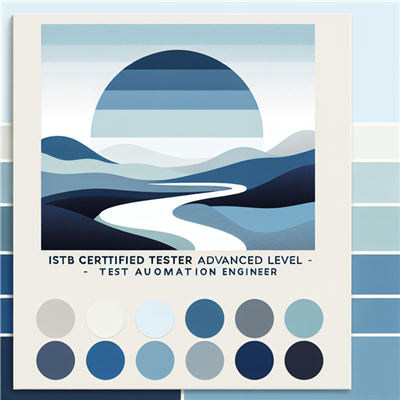
In the world of cloud computing, Amazon Web Services (AWS) is a dominant player, providing a wide range of cloud-based services for businesses. As companies increasingly shift their operations to the cloud, database management has become a critical component of their infrastructure. To support this need, AWS offers a range of database services and certifications that validate your expertise in managing cloud databases.
AWS certifications can significantly boost your career, especially if you’re interested in becoming an expert in cloud database management. This blog will provide a comprehensive guide to AWS database-related certifications, explaining which certification is right for you based on your experience and career goals. We'll also highlight Koenig Solutions as an excellent platform for preparing for these certifications.
Why AWS Database Certifications Matter
AWS certifications, particularly those focused on databases, are highly sought after by IT professionals and employers alike. These certifications validate your ability to design, implement, and maintain databases in AWS's cloud infrastructure. They are designed for cloud database architects, database administrators, and other professionals who work with databases in a cloud environment.
By earning an AWS Database certification, you’ll prove that you can handle AWS's diverse range of database services, including relational, non-relational, and data warehousing solutions like Amazon RDS, DynamoDB, Aurora, and Redshift.
Benefits of AWS Database Certifications:
- Career Advancement: Certified professionals often enjoy better job prospects and higher salaries.
- Validation of Skills: Demonstrates your expertise in AWS database technologies.
- Industry Recognition: AWS certifications are globally recognized, boosting your credibility as a cloud database expert.
- Practical Knowledge: AWS exams are designed to test real-world skills, ensuring that certified individuals are well-prepared to manage database solutions in AWS environments.
- In-Demand Skills: As more businesses move to the cloud, AWS-certified database professionals are in high demand.
Types of AWS Database Certifications
AWS offers several certifications that focus on different aspects of cloud services, including databases. For those looking to specialize in databases, the AWS Certified Database – Specialty is the most prominent. Let’s explore the certifications that are relevant for those seeking to build their career in AWS database management.
1. AWS Certified Data Engineer- Associate
The AWS Certified Data Engineer - Associate certification is designed for individuals who have a strong foundation in data engineering and want to demonstrate their ability to build and maintain data pipelines and analytics solutions on the AWS platform. This certification is ideal for data engineers, data analysts, and data scientists who are looking to validate their skills and knowledge in AWS data services.
Key Areas Covered:
- Understanding of AWS data services like Amazon S3, Amazon Redshift, Amazon EMR, and Amazon Kinesis.
- Knowledge of data extraction, transformation, and loading (ETL) processes.
- Ability to design and implement data pipelines for various use cases.
- Familiarity with data warehousing and data lake concepts.
- Understanding of data analysis and visualization tools on AWS.
Who Should Take This Exam?
- Data Engineers: Looking to validate their skills in building and maintaining data pipelines on AWS.
- Data Analysts: Wanting to demonstrate their ability to work with large datasets and extract insights using AWS tools.
- Data Scientists: Seeking to enhance their understanding of AWS data services for data preparation and analysis.
Exam Details:
- Format: Multiple-choice and multiple-response questions.
- Duration: 180 minutes.
- Cost: $300 USD.
- Prerequisites: At least 2 years of experience with data engineering concepts and 1 year of hands-on experience with AWS data services.
The AWS Certified Data Engineer - Associate certification is a valuable credential for individuals who want to specialize in data engineering on AWS. It validates your skills in designing, building, and managing data pipelines and analytics solutions, making you a valuable asset in the field of data engineering.
2. AWS Certified Solutions Architect – Associate
While not exclusively focused on databases, the AWS Certified Solutions Architect – Associate certification includes a significant amount of database content. This certification is ideal for those in cloud architecture roles who need a broad understanding of AWS services, including databases.
Key Areas Covered:
- Best practices for designing scalable and resilient cloud-based systems.
- Understanding of database services like Amazon RDS, DynamoDB, and Redshift as part of a larger cloud architecture.
- How to deploy and manage database solutions within a broader AWS infrastructure.
Who Should Take This Exam?
- Cloud Architects: Professionals who want to understand how databases fit into the overall cloud architecture.
- Database Administrators and Engineers: Those looking to complement their database skills with a broader understanding of AWS cloud services.
Exam Details:
- Format: Multiple-choice questions.
- Duration: 130 minutes.
- Cost: $150 USD.
- Prerequisites: 6 months to 1 year of hands-on experience with AWS services.
This certification is a great starting point for individuals looking to build a strong foundation in AWS and cloud architecture, with a focus on how databases integrate into larger cloud systems.
3. AWS Certified Data Analytics – Specialty
The AWS Certified Data Analytics – Specialty is geared towards professionals who specialize in data analytics and data management. It covers the essential AWS services used for collecting, storing, processing, and analyzing data. While not solely focused on databases, this certification covers many aspects of database management in the context of data analytics.
Key Areas Covered:
- Understanding how to design and manage data storage solutions with Amazon RDS, Redshift, and DynamoDB.
- Data processing using AWS services such as Amazon EMR and AWS Glue.
- Data visualization and analytics using Amazon QuickSight.
Who Should Take This Exam?
- Data Engineers: Focused on data storage, transformation, and analytics.
- Database Administrators: Wanting to specialize in large-scale data analytics solutions.
Exam Details:
- Format: Multiple-choice and multiple-response questions.
- Duration: 180 minutes.
- Cost: $300 USD.
- Prerequisites: 5 years of experience in data analytics technologies, with at least 2 years of hands-on experience working with AWS data and analytics services.
This certification is perfect for professionals who want to focus on data-driven decision-making and how databases play a role in storing and analyzing massive datasets.
How to Choose the Right AWS Database Certification for You
Choosing the right certification depends on your experience level, career goals, and current role. Here are some considerations:
-
Beginner or Mid-Level Professional:
- If you’re new to cloud computing and databases, start with the AWS Certified Solutions Architect – Associate. This will give you a broad understanding of AWS services, including databases.
- Experienced Database Professional:
- If you already have experience with databases, go for the AWS Certified Database – Specialty. It’s designed specifically for professionals who want to validate their database management skills in AWS environments.
- If you’re more focused on data analytics and big data, the AWS Certified Data Analytics – Specialty is the right choice. This certification covers both database management and the data analytics lifecycle.
- Data-Focused Professional:
Preparing for AWS Database Certifications
1. Self-Study Resources
- AWS offers free and paid resources such as whitepapers, FAQs, and study guides on its official website.
- Practice exams are available to help you familiarize yourself with the exam format.
2. Online Courses
- Platforms like Koenig Solutions provide expert-led training that prepares you for AWS certification exams through detailed tutorials, practical labs, and exam simulations.
Koenig Solutions: Your Partner for AWS Database Certification
When it comes to preparing for AWS certifications, Koenig Solutions stands out as one of the leading training providers. Here's why Koenig is the ideal platform to help you earn your AWS Database certification:
- Expert Instructors: Koenig Solutions has certified and experienced instructors who are specialists in AWS cloud and database technologies. They provide detailed insights and practical knowledge, ensuring you understand both theoretical and real-world applications.
- Flexible Learning Options: Whether you prefer classroom learning, live virtual training, or on-demand video courses, Koenig offers multiple learning formats to fit your schedule.
- Hands-on Labs: With Koenig, you’ll have access to hands-on labs and practice environments that mirror real AWS scenarios. This allows you to practice database management tasks in a safe, simulated cloud environment.
- Customized Learning Paths: Koenig tailors its training programs based on your experience level and goals, whether you’re aiming for the AWS Certified Database – Specialty or the AWS Certified Solutions Architect exam.
- Global Reach and Recognition: Koenig Solutions is recognized worldwide as a top IT training provider, making your certification journey smooth and credible.
Conclusion
AWS database certifications offer immense value to professionals looking to specialize in cloud database management and related areas. Whether you’re just starting or looking to deepen your expertise, AWS offers certifications for every level. Choosing the right one will depend on your career goals and experience.
Partnering with Koenig Solutions for your certification preparation ensures you receive top-quality training from industry experts, setting you up for success in earning your AWS Database certification. With the right training and certification, you can become a highly sought-after professional in the rapidly growing field of cloud database management.







COMMENT